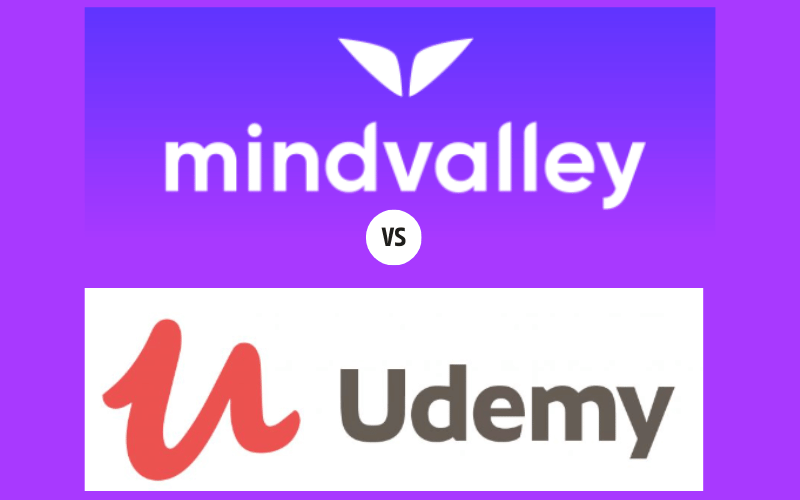Embarking on a journey of self-discovery and skill acquisition is a profound endeavor, and the online learning platforms Mindvalley vs. Udemy present themselves as guiding lights in this quest, asking ourselves… Which has the best personal development courses? In this exploration, we will navigate the unique offerings, strengths, and approaches of these platforms, helping you discern the path that aligns best with your pursuit of wisdom and knowledge. Welcome to the journey of discovery as we delve into the distinctive features of Mindvalley and Udemy.
Table of Contents
Course Variety
When it comes to selecting an online learning platform, the variety of courses offered is a crucial factor. Let’s delve into the diverse worlds of Mindvalley vs. Udemy to understand the range of educational opportunities they provide.
Mindvalley takes pride in curating a collection of courses that transcend traditional boundaries. Focused primarily on personal development, they offer a unique array of courses spanning topics like mindfulness, well-being, spirituality, and more. Each course is meticulously designed to foster holistic growth, with an emphasis on transformative experiences.

Udemy as a vast online marketplace, takes a different approach by offering an extensive range of courses covering virtually every subject imaginable. From technology and business to lifestyle and hobbies, they are a one-stop-shop for learners seeking variety. The platform accommodates both niche and mainstream interests, making it a versatile choice for diverse learning needs.
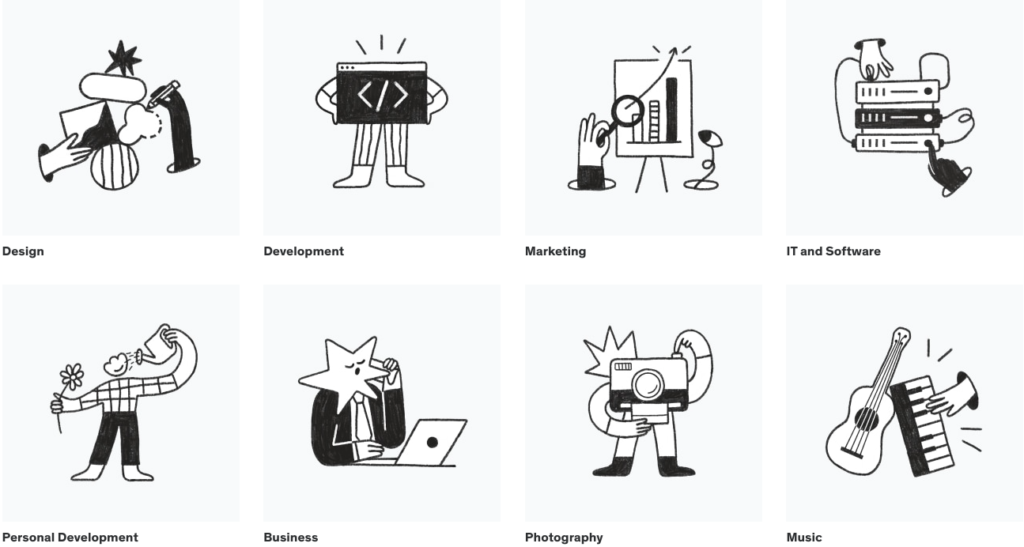
Comparison: While Mindvalley’s strength lies in its specialization in personal development, Udemy’s broad spectrum caters to a wide audience with varied interests. The choice between the two depends on whether you’re seeking a curated personal growth experience or a more expansive selection of courses.
In summary, when evaluating course variety, consider your specific learning goals. Mindvalley provides depth in personal development, while Udemy offers breadth across numerous subjects. Choose the platform that aligns with your interests and the learning journey you wish to embark on.
Instructors and Experts
One of the key elements in the online learning experience is the caliber of instructors and experts guiding your educational journey. Let’s compare the approaches of both in selecting and presenting their pool of educators.
Mindvalley is renowned for partnering with top-tier experts and thought leaders in the personal development space. The platform prides itself on curating courses led by individuals with profound knowledge and practical wisdom. From renowned authors to spiritual leaders, they ensure that learners receive guidance from experts who have made significant contributions to their respective fields.

Udemy operates as a marketplace where virtually anyone can become an instructor. While this approach results in a diverse range of courses, it also means that expertise levels can vary. They provide a platform for experts, industry professionals, and enthusiasts alike to share their knowledge. Users can access detailed instructor profiles, reviews, and ratings to make informed choices.

Comparison: Mindvalley’s strength lies in its meticulous curation of instructors, ensuring learners receive guidance from established experts. Udemy, on the other hand, offers a democratic space for various voices, allowing learners to choose instructors based on user feedback and credentials.
In conclusion, the choice between both in terms of instructors depends on whether you prefer curated expertise or a more democratic selection process. Consider your learning style and the importance of learning from established authorities or a diverse range of voices.
Teaching Approach
The teaching approach adopted by an online learning platform plays a pivotal role in shaping the educational experience. Let’s explore the distinct teaching methodologies of Mindvalley vs. Udemy.
Mindvalley is renowned for its innovative and experiential teaching methods. Courses on Mindvalley often go beyond traditional lectures, incorporating interactive elements, practical exercises, and immersive experiences. The platform emphasizes holistic learning, aiming to transform not just the mind but the entire being. Whether through guided meditations, hands-on activities, or real-life applications, their teaching approach is designed for a transformative journey.

Udemy typically follows a more conventional teaching approach, with courses structured as video lectures supplemented by quizzes and assignments. Instructors on Udemy have the flexibility to design courses based on their preferred teaching style, resulting in a variety of approaches across the platform. While some courses may incorporate practical exercises, their strength lies in delivering comprehensive content in a more traditional format.
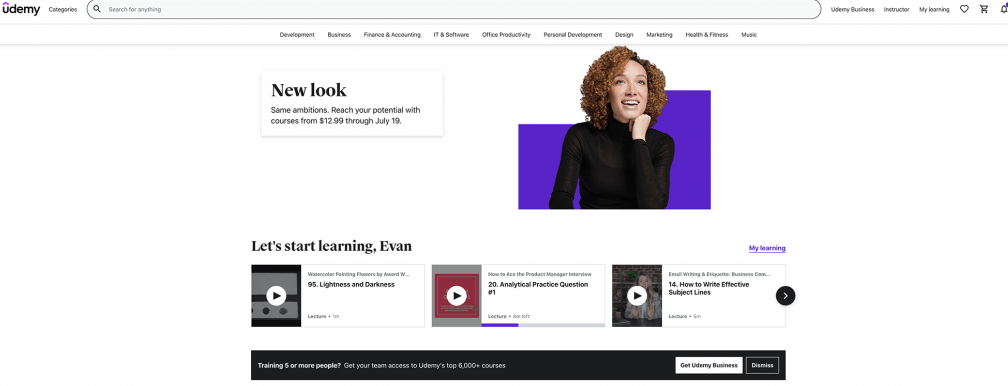
Comparison: Mindvalley stands out for its emphasis on experiential and transformative learning experiences. In contrast, Udemy provides a diverse range of teaching styles, allowing instructors to choose methods that suit their content and audience. The choice between the two depends on your preference for a holistic, immersive approach or a more structured and traditional learning experience.
In summary, when evaluating teaching approaches, consider your learning style and whether you resonate more with interactive, transformative experiences or a diverse range of traditional and structured courses . Your choice will shape your overall learning journey.
Pricing Structure
Understanding the pricing structures of online learning platforms is crucial for learners seeking quality education within their budget. Let’s compare both pricing models.
Mindvalley operates on a subscription-based model. Users typically pay a recurring fee to access a bundle of courses. This subscription approach provides learners with the flexibility to explore various topics within the their ecosystem. While it may involve a higher upfront cost, the subscription model can offer cost savings for those planning to engage in multiple courses over time. Subscription prices may vary.

Udemy in contrast, follows an individual course pricing model. Users purchase courses separately, paying a one-time fee for each. They often runs promotions and discounts, allowing learners to acquire courses at more affordable rates. This pay-as-you-go model is advantageous for those who prefer to focus on specific topics without committing to a broader subscription.
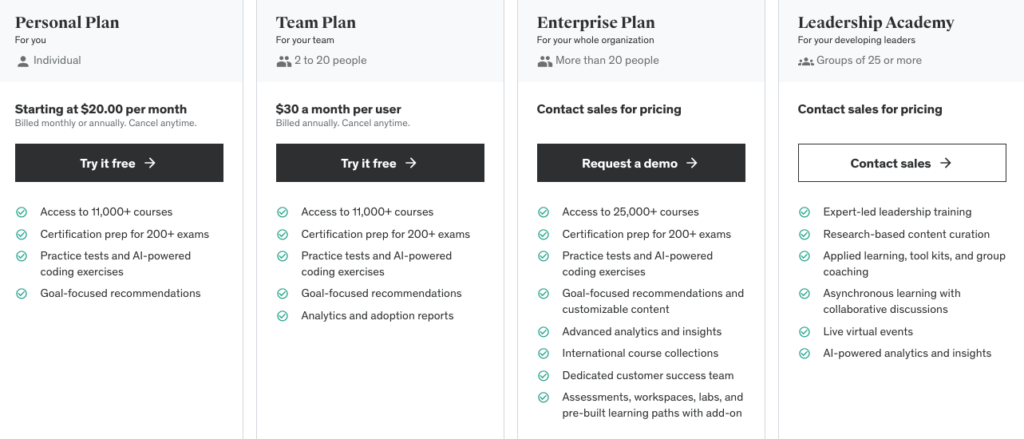
Comparison: The choice between both in terms of pricing depends on your learning goals and budget. Mindvalley’s subscription model offers access to a curated selection of courses, potentially providing value for those seeking a comprehensive personal development journey. Udemy’s individual course pricing model is more flexible, catering to learners with specific interests or budget constraints.
In conclusion, when considering the pricing structure, assess your learning needs and budget constraints. Mindvalley’s subscription model suits those aiming for a broader personal development experience, while Udemy’s pay-as-you-go approach is ideal for targeted learning on a budget.
Subscription Options
Exploring subscription offers is a crucial aspect when deciding on an online learning platform. Let’s compare the subscription options provided by both.
Mindvalley stands out with its subscription-based model, offering the Mindvalley Membership. With a membership, users gain unlimited access to the entire library of their courses. This holistic approach allows learners to explore diverse personal development topics without the need to individually purchase each course. The subscription often includes additional perks like exclusive content, live events, and a community of like-minded individuals.

Udemy primarily follows an à la carte model, where users purchase individual courses based on their specific interests. While they don’t have a traditional subscription offer, it frequently provides discounts and promotions. Users can take advantage of these offers to build a tailored learning experience without committing to a recurring subscription.

Comparison: Mindvalley’s subscription model is ideal for learners seeking an immersive and comprehensive personal development journey. Their membership offers value for those interested in exploring multiple facets of self-improvement within a supportive community. On the other hand, Udemy’s à la carte approach is flexible, allowing users to curate their learning path based on specific topics of interest.
In conclusion, when deciding between both, consider your preference for a comprehensive, subscription-based experience or a flexible, à la carte approach with occasional promotions. Your choice will depend on the depth and diversity of your learning objectives.
User Experience
The user experience is a critical aspect of any online learning platform, influencing how seamlessly learners can navigate courses and access content. Let’s compare the user experiences of both.
Mindvalley is renowned for its visually appealing and intuitive user interface. Navigating through courses is designed to be a holistic and enjoyable experience. The platform emphasizes a clean and immersive design, making it easy for users to explore different personal development paths. Their user experience extends beyond courses, fostering a sense of community with features like forums and live events.

Udemy offers a user-friendly design, allowing learners to easily access a vast library of courses. The platform’s straightforward navigation ensures that users can quickly find and enroll in courses of interest. While their interface may be less visually immersive, it excels in simplicity, making it accessible for a broad audience.
Comparison: Mindvalley prioritizes a visually appealing and immersive experience, fostering a sense of community engagement. Udemy, on the other hand, excels in simplicity, providing straightforward navigation for users who prefer a more direct approach to course selection.
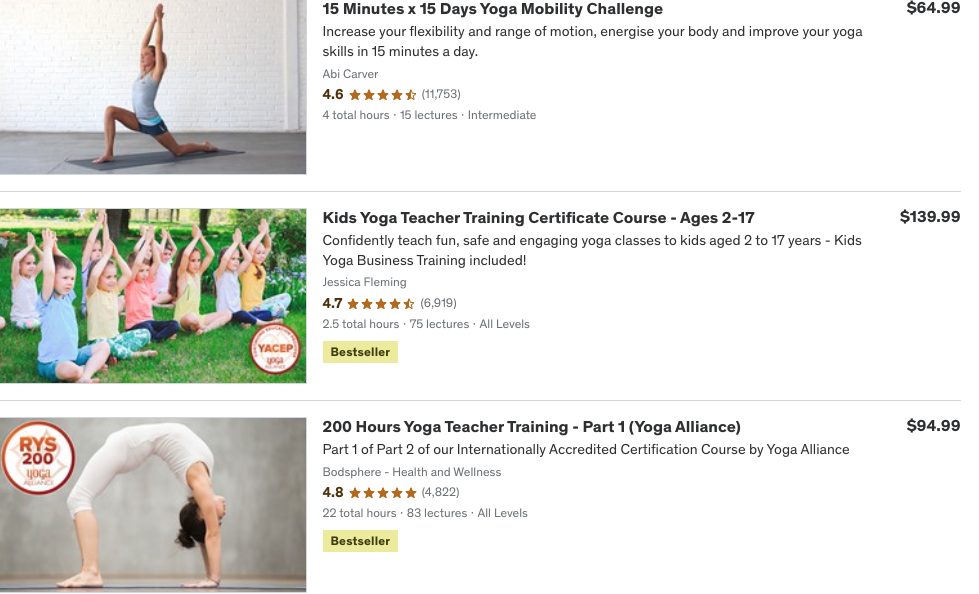
In conclusion, the choice between both in terms of user experience depends on your preferences. If you value a visually immersive and community-driven platform, Mindvalley may be the ideal choice. For those who prioritize simplicity and direct course access, Udemy offers an efficient and user-friendly experience.
Community and Support
Community engagement and support are pivotal for a fulfilling online learning experience. Let’s compare how both foster community connections and provide support to learners.
Mindvalley places a strong emphasis on community building. Learners have access to forums and discussion groups where they can connect with like-minded individuals. The platform often hosts live events, creating opportunities for learners to engage directly with instructors and fellow participants. The supportive community environment contributes to a sense of shared growth and mutual encouragement.

Udemy doesn’t have a centralized community feature, it offers a robust support system. Each course includes a Q&A section where learners can ask questions, share insights, and interact with instructors and peers. This decentralized approach allows for course-specific community engagement, with instructors actively participating in discussions to address queries and provide guidance.

Comparison: Mindvalley’s community-centric approach provides a holistic and interactive learning environment. Learners benefit from shared experiences, live events, and ongoing discussions. Udemy, while lacking a centralized community, compensates with course-specific Q&A sections, ensuring learners receive timely support tailored to the content they are studying.
In conclusion, when choosing, consider your preference for community engagement. Mindvalley offers a comprehensive, platform-wide community experience, while Udemy provides decentralized, course-specific support. Your choice depends on the level of interaction and support you desire in your learning journey.
Course Quality and Production
The quality and production value of online courses significantly impact the learning experience. Let’s compare how both approach course quality and production.
Mindvalley is renowned for its high-quality course production. Courses often feature polished videos, engaging visuals, and interactive elements. The platform prioritizes a visually appealing and immersive experience to enhance the overall learning journey. The production values contribute to a sense of professionalism and excellence in content delivery.

Udemy courses vary in production quality as they are created by individual instructors. While some courses may have professional production standards, others might be more straightforward. The platform provides a diverse range of content, allowing instructors to choose their preferred style. Learners should check course previews and reviews to gauge the production quality before enrolling.

Comparison: Mindvalley excels in providing consistently high-quality and immersive course production values. Udemy, being a diverse marketplace, offers a range of production styles based on individual instructors’ preferences. Learners looking for a standardized, polished experience may find Mindvalley more aligned with their expectations.
In conclusion, the choice between both in terms of course quality and production depends on your preference for a standardized, immersive experience or a diverse range of content styles. Consider your learning style and expectations when making this decision.
Reviews and Testimonials
User reviews and testimonials are valuable insights into the effectiveness and satisfaction of an online learning platform. Let’s compare how both fare in terms of reviews and testimonials.
Mindvalley has garnered positive reviews for its transformative personal development courses. Learners often share testimonials highlighting life-changing experiences and personal growth. The platform showcases these testimonials, creating a sense of trust and credibility. Potential users can gain insights into the impact of courses through the firsthand experiences shared by the community.

Udemy features a robust review system for each course, allowing learners to provide feedback and ratings. Reviews cover a wide range of perspectives, providing a comprehensive view of the strengths and potential drawbacks of a course. Learners can assess the relevance of a course based on the experiences shared by others.

Comparison: Mindvalley’s testimonials often focus on the profound personal transformations experienced by learners. Udemy, with its vast library of courses, offers a broad spectrum of reviews, allowing potential learners to make informed decisions based on various perspectives.
In conclusion, when considering reviews and testimonials, Mindvalley excels in showcasing transformative experiences, while Udemy offers a diverse range of perspectives from learners across different courses. Your choice may depend on the type of insights you find most valuable for your decision-making process.
Global Reach
Assessing the global reach of online learning platforms is crucial for learners seeking accessibility and diversity. Let’s compare how both cater to a global audience.
Mindvalley has a broad international presence, offering courses to a global audience. With a focus on personal development, their content often transcends cultural boundaries, making it relevant to learners worldwide. The platform’s commitment to providing content in multiple languages further enhances its global accessibility.

Udemy boasts a vast library of courses, making it accessible to learners from around the world. The platform’s extensive offering covers diverse topics, ensuring that individuals with various interests and backgrounds can find relevant content. Udemy’s courses are available in multiple languages, contributing to its global appeal.
Comparison: Both Mindvalley vs. Udemy have a commendable global reach. Mindvalley’s emphasis on personal development resonates across cultures, while Udemy’s extensive course library caters to a diverse array of interests worldwide.
In conclusion, when considering global reach, both provide accessible and diverse learning opportunities. The choice may depend on your specific interests and the cultural relevance you seek in your learning journey.
Mobile Accessibility
In today’s dynamic world, the ability to access courses on mobile devices is a key consideration for learners on the go. Let’s compare the mobile accessibility of both.
Mindvalley recognizes the importance of mobile learning and offers a user-friendly mobile app. Learners can seamlessly access courses, engage in lessons, and participate in community discussions from their smartphones or tablets. The app’s intuitive design ensures that the transformative learning experience they provide is not confined to desktops but extends to the convenience of mobile devices.

Udemy also prioritizes mobile accessibility, providing a dedicated mobile app for learners. The app allows users to browse, enroll in, and complete courses from their mobile devices. Whether on a daily commute or during travel, their mobile app ensures that learners can seamlessly integrate learning into their busy lifestyles.
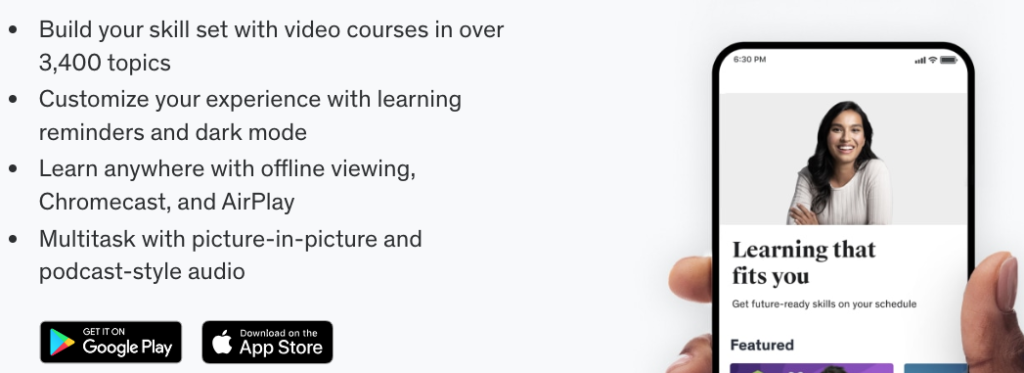
Comparison: Both recognize the significance of mobile accessibility, offering dedicated apps for learners. The choice between the two platforms may depend on the specific features and user experience you seek in a mobile learning environment.
In conclusion, if mobile learning flexibility is a priority for you, both cater to this need with their user-friendly mobile apps. Assess the specific features and interface preferences to determine which platform aligns better with your on-the-go learning style.
Certifications and Accreditation
For many learners, obtaining recognized certifications is a crucial aspect of their online learning journey. Let’s compare how they approach certification and accreditation.
Mindvalley places a strong emphasis on personal development and transformative learning experiences. While courses provide valuable insights and skills, they may not always come with traditional certifications recognized in professional or academic spheres. The focus here is on personal growth and holistic development rather than formal accreditation.
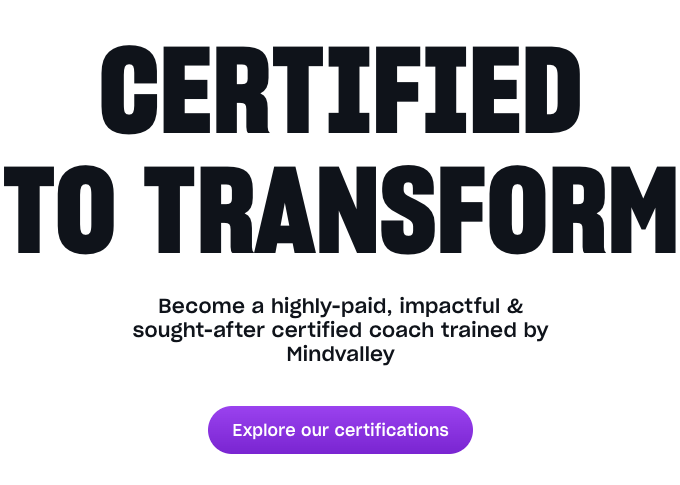
Udemy offers a diverse range of courses, and many come with certificates of completion. These certificates are a testament to the learner’s successful completion of a course and can be showcased on resumes or LinkedIn profiles. While certificates are not universally accredited, they hold value as a recognition of acquired skills in specific domains.

Comparison: Mindvalley’s approach is geared more towards personal growth and though there are a certificaitons, there is less emphasis on traditional certifications. Udemy, on the other hand, provides certificates that can serve as tangible proof of skills acquired through their courses, enhancing professional profiles.
In conclusion, when considering certification, decide whether you prioritize personal growth experiences or acquiring recognized certificates for professional and academic purposes. Your choice will depend on your specific goals and the type of recognition you seek.
Updates and New Content
Keeping pace with evolving knowledge and staying informed about the latest content is crucial for online learners. Let’s compare how both handle updates and provide new content to their users.
Mindvalley is committed to offering fresh and innovative content regularly. The platform frequently updates its courses and introduces new material to ensure learners have access to the latest insights in personal development. Their dedication to providing cutting-edge content contributes to a dynamic learning environment, keeping learners engaged with up-to-date information.

Udemy‘s vast marketplace is characterized by a constant influx of new courses. Instructors regularly add fresh content to their existing courses, and often features promotions for new courses. This dynamic approach ensures that learners have a diverse array of topics to explore, with the platform staying current with emerging trends and subject matter.
Comparison: Both prioritize updates and new content, but their approaches differ. Mindvalley focuses on enhancing existing courses and maintaining a high standard of quality in personal development. Udemy thrives on the diversity of its marketplace, continually introducing new courses to cater to a broad range of interests.
In conclusion, when considering updates and new content, choose between Mindvalley’s focus on continuous improvement within specific domains or Udemy’s diverse array of constantly evolving courses. Your decision will depend on your preferences for depth versus breadth in your learning journey.
Target Audience
Understanding the target audience of online learning platforms is essential for learners seeking courses tailored to their specific needs. Let’s compare how both define their target audience.
Mindvalley’s target audience is individuals seeking personal development and transformative experiences. The platform caters to those interested in holistic growth, mindfulness, and well-being. Their courses are designed for learners who prioritize self-discovery, spiritual exploration, and a deeper understanding of themselves. The target audience often includes individuals committed to intentional and organic lifestyle choices.

Udemy’s target audience is broad and diverse. The platform caters to learners with varying interests, from technology and business professionals to hobbyists and enthusiasts. Their extensive course library ensures that individuals from different backgrounds and industries can find relevant content. The target audience spans a wide spectrum, making them a versatile platform for anyone seeking to acquire new skills or knowledge.

Comparison: Mindvalley has a more niche target audience focused on personal development and holistic well-being. Udemy, with its vast course selection, appeals to a broad and varied audience, accommodating learners with diverse interests and goals.
In conclusion, when choosing either, consider your specific interests and goals. Mindvalley is ideal for those prioritizing personal development, while Udemy caters to a wide audience with diverse learning objectives.
Learning Format and Flexibility
The format of learning and the flexibility of a platform play a crucial role in accommodating diverse learning preferences. Let’s compare how both approach learning formats and flexibility.
Mindvalley focuses on providing a holistic and immersive learning experience. Courses often involve a blend of video lessons, interactive exercises, and community engagement. The platform emphasizes experiential learning, encouraging users to not only consume information but actively apply it. While the format is curated for a transformative journey, it may have a structured and sequential nature.

Udemy offers a flexible learning format with a diverse range of courses. The platform’s courses typically consist of video lectures, quizzes, assignments, and downloadable resources. They provide learners with the freedom to choose courses based on their preferences and pace. This flexibility is advantageous for those who prefer self-directed learning and a more a-la-carte approach.

Comparison: Mindvalley’s learning format is structured for a transformative journey, incorporating various elements for a comprehensive experience. Udemy, with its diverse course offerings, provides flexibility for learners to customize their learning path based on individual preferences.
In conclusion, when deciding between both, consider your learning style. If you value an immersive, structured journey, Mindvalley may be the choice. For those seeking flexibility and a customizable learning experience, Udemy offers a more adaptable format.
Conclusion
In the realm of online learning, both stand out as prominent platforms, each offering unique strengths tailored to diverse learner preferences. As you embark on your learning journey, consider the key factors that align with your goals, interests, and preferred learning style.
Mindvalley excels in providing a curated and transformative experience focused on personal development, holistic growth, and intentional living. If you seek a platform that goes beyond traditional learning, offering immersive experiences, a supportive community, and a structured journey towards self-discovery, they might be your ideal choice.
Udemy, on the other hand, caters to a broad audience with its extensive library of courses spanning various topics. The platform’s strength lies in flexibility, allowing learners to tailor their learning experience with a diverse array of courses. If you prefer a more a-la-carte approach, exploring specific skills or interests at your own pace, they provide the versatility you may be looking for.
Consider Your Priorities: In making your decision, consider your priorities. Are you seeking a transformative journey with a focus on personal development , or do you value the flexibility to choose from a vast array of courses based on your specific interests?
Explore Reviews and Testimonials: Delve into reviews and testimonials to gain insights from other learners who share similar goals or interests. Whether it’s testimonials highlighting life-changing experiences on Mindvalley or diverse perspectives on Udemy, learner feedback can guide you in making an informed decision.
Try Both Platforms: Ultimately, the best way to determine the right fit is to experience both platforms. Many learners find value in exploring courses on both, leveraging the unique strengths of each for a well-rounded learning experience.
As you embark on your educational journey, remember that the most important aspect is your commitment to learning and growth. Whether you choose Mindvalley, Udemy, or a combination of both, the pursuit of knowledge is a transformative endeavor that holds the power to shape your personal and professional path. Happy learning!


